2024
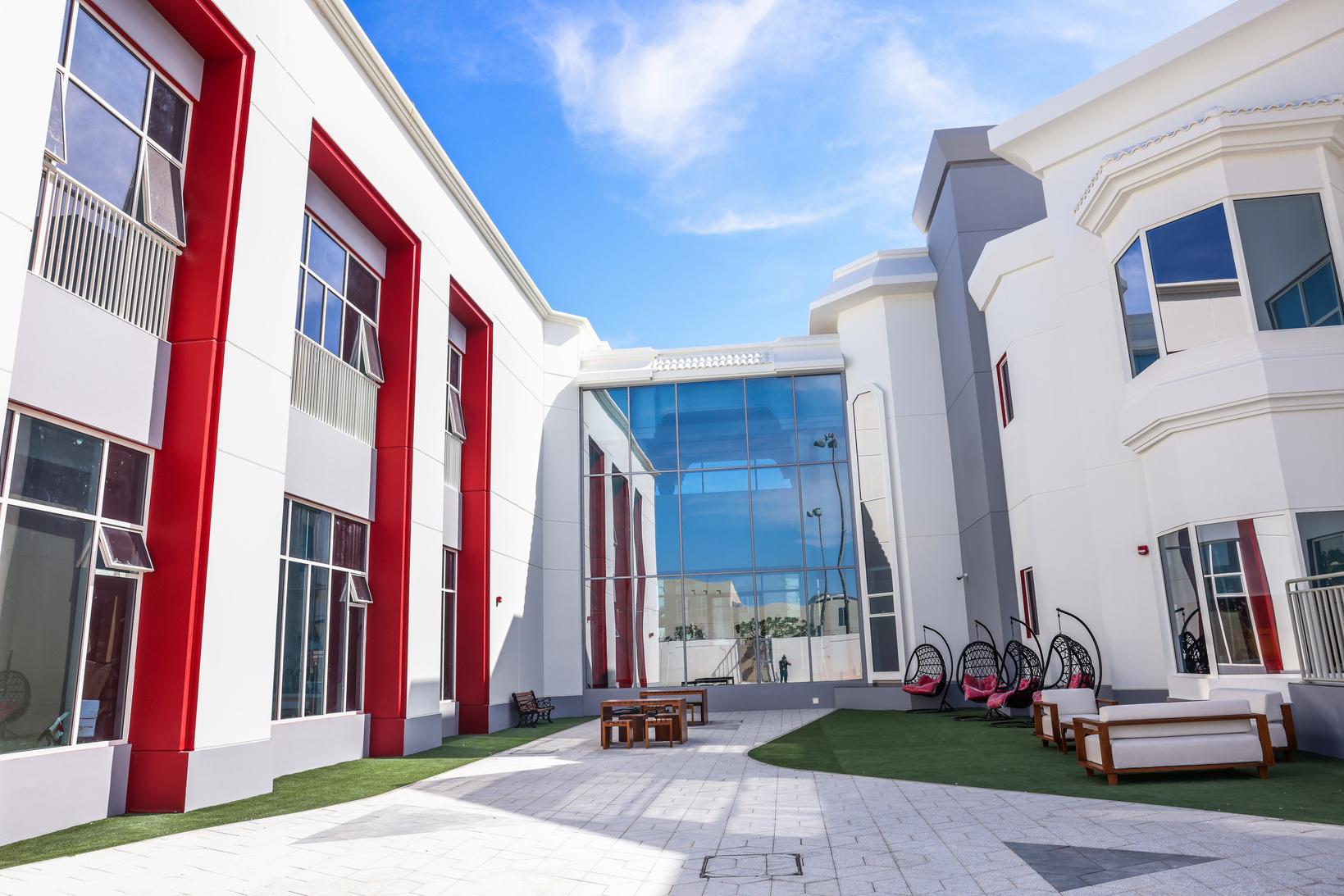




A



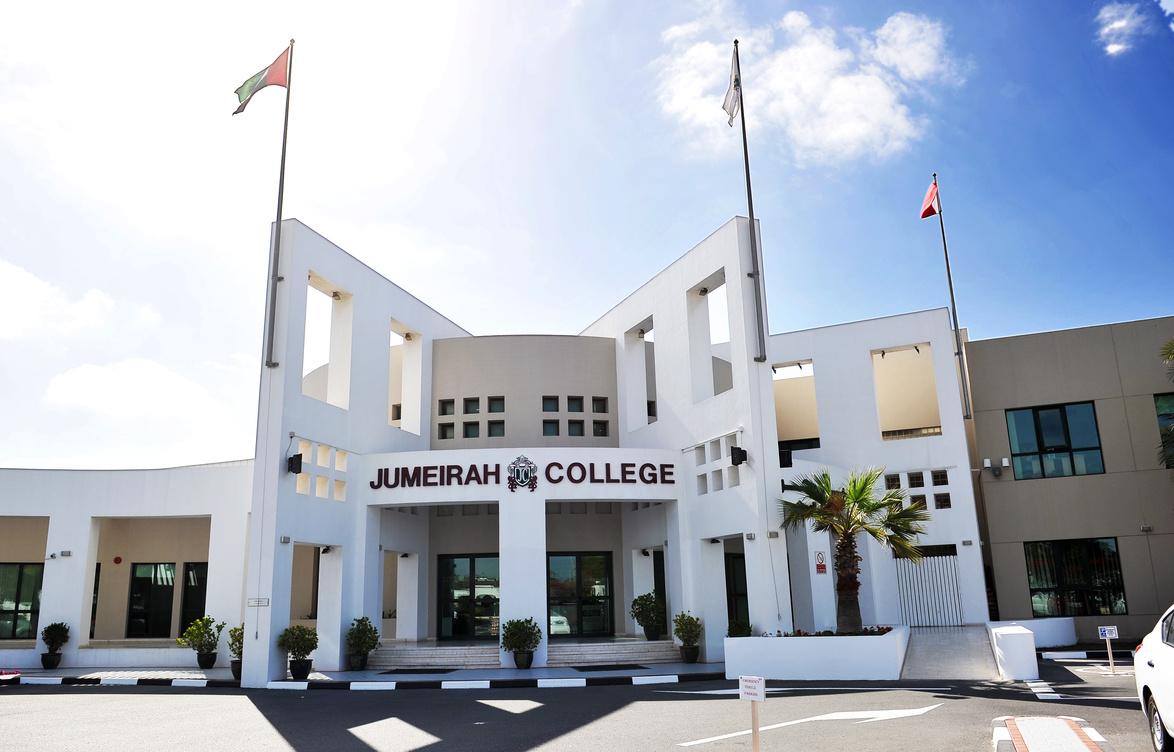



Outstanding for the 10th consecutive year
Jumeirah College Dubai is an outstanding British school in Dubai– not just in terms of academics, but also in terms of developing each and every one of our students socially, physically and emotionally
We don’t believe in comparing our students to average benchmarks Instead, we focus on understanding our students as learners and individuals, exploring and embracing every opportunity to encourage and support them in their learning and growth
With students from over 59 nationalities, we are a truly international school with a truly global mindset We instil these values in our students, moulding them into successful, well-rounded, and open-minded international citizens of the 21st century.
Delivering The National Curriculum for England from Years 7 to 13, we are registered with the DFE, Department for Education and Skills in London, and as an examination centre for the appropriate UK examination boards



It is with great pleasure and enthusiasm that I extend a warm welcome to you as you consider joining our vibrant GCSE community at Jumeirah College As the Principal of this esteemed institution, I am honored to introduce you to an educational journey that goes beyond conventional boundaries, fostering not just academic excellence but also personal growth and character development
GCSE at Jumeirah College is a hub of intellectual curiosity, where students are encouraged to explore their passions, think critically, and become lifelong learners We believe in providing a holistic education that prepares our students not only for the challenges of higher education but also equips them with the skills and values necessary for success in an ever-evolving global landscape
At the heart of our GCSE is a dedicated and experienced team of educators committed to nurturing the unique talents and aspirations of each student. We offer a diverse range of subjects, allowing you to tailor your academic journey to align with your interests and future goals Beyond the classroom, our extensive extracurricular activities, leadership opportunities, and community engagement programmes provide a rich tapestry of experiences that complement the academic curriculum
As you peruse this prospectus, I invite you to envision the possibilities that await you at Jumeirah College. Join us in creating an environment where innovation, collaboration, and a passion for learning converge to shape not just successful students but responsible and compassionate global citizens
I look forward to the prospect of welcoming you into our family, where you will find not only an exceptional education but also a supportive community that values your individuality and encourages you to reach your fullest potential
Best Regards,
Nick Brain Principal
Read our previous inspection reports here
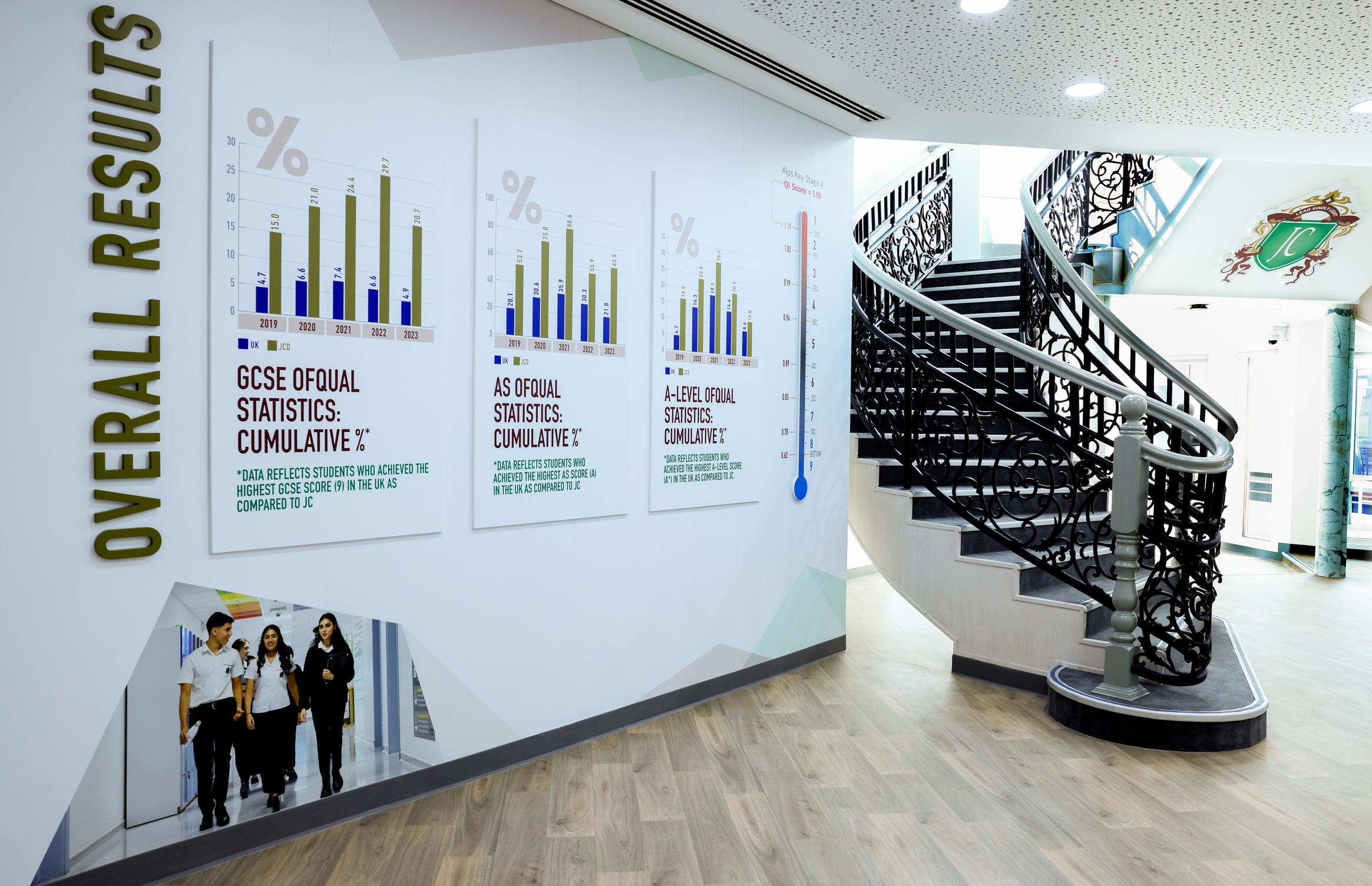
Monday 26 February 2024
A video link will be made available which will explain the options process to students and parents, alongside advice on selection of options


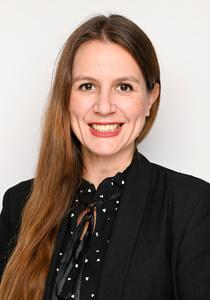
Mrs Joanne Howes & Ms Sara Prince, Career Counsellors, will also be contactable at j.howes@gemsedu.com and s.prince jcd@gemsedu.com if you would like to make a formal appointment via Zoom
February 26
GCSE Options Launch
GCSE Videos available on website
GCSE Prospectus available on website
GCSE Options Form shared with students
February-March
GCSE Marketplace Activity
Year 9 students only, during PM Registration
Existing GCSE students answer their peers ’ questions on: suitability of courses, potential progression, style of lessons and assessment, relative difficulty of subjects, etc.
May 2
Year 9 PTC 2
Opportunity to discuss suitability of potential subject choices with current subject teachers
March 18
GCSE Options Submission deadline
Option Forms submitted to Mr Kesterton
Physical copies can be handed in to reception or form tutors
Digital copies can be emailed to Mr. Kesterton: r.kesterton jcd@gemsedu.com
September 14
Deadline for GCSE options changes
GCSE is the acronym for the General Certificate of Secondary Education.
Examination boards based in the UK include AQA, EDEXCEL and Cambridge
GCSEs are designed to examine all ability ranges with grades ranging from G to A* (A* is the highest level of attainment) for current GCSEs and a new scoring system of 1-9 was introduced for new GCSEs in Maths and English in 2015 and other subjects in 2016
Students at Jumeirah College typically study between 9 and 11 GCSEs
5 GCSEs at grades A* - C are often used as a benchmark of reasonable attainment for students of average ability, with many expecting English Language and Mathematics to be included. We set aspirational and realistic targets with our students which ensure that the vast majority achieve well in excess of average attainment
GCSEs are undertaken over the two years of Key Stage 4, i e Years 10 and 11
Many GCSE courses have an element of coursework known as Controlled Assessment which is prepared in class and at home but completed under examination conditions in College. Tasks are marked by our teachers then externally moderated by the examination board All controlled assessments must be completed before examinations can be undertaken
Examinations will take place at the end of the two years of study in the final term of Year 11. This is according to regulations issued by the UK Government Further information can be found at:
https://www gov uk/government/organisations/ofqual
The English Baccalaureate is not a separate qualification, but is available for students whose options meet the below criteria The aim of the EBacc is to ensure students gain a range of worthwhile subjects, skills and experiences It is achieved by attaining at least grade 4s at GCSE in English Language, Mathematics, Sciences (including Computing), a humanity (either history or geography) and a modern foreign language (including Arabic) We encourage students to ensure that their option choices allow them to qualify for the English Baccalaureate, although we have not made qualification for the EBacc compulsory.
To qualify for entry to the Jumeirah College Sixth Form at the current time, a minimum of six GCSEs at grade 6 (B) to 5 (C) are required, including English Language as a first language and Mathematics Students also need to meet entry requirements for their 3 A Level choices. Although some subjects have a higher entry requirement, the minimum entry requirements for specific subjects is usually a grade 6 (B grade) at GCSE More detailed information can be found in the Sixth Form prospectus available as an eBook on the College Website
Changes to assessment:
Key structural features of the new GCSEs confirmed by Ofqual include:
A new grading scale that uses the numbers 1–9 to identify levels of performance (with 9 being the top level - attained by the top 5% of the global GCSE cohort in a subject). Where performance is below the minimum required to pass a GCSE, students will be awarded a U for Ungraded
GCSEs are now linear, with assessment to be taken at the end of the course in June Re-sit opportunities will only generally be available in November for English Language and Maths
Assessment by external exam only, except where non-exam assessment is the only way to provide valid assessment of the skills required. Maths, English Literature and English Language to be externally assessed. English Language has a Speaking assessment that will be reported separately.
We offer some iGCSEs which retain the letter grades This means that for now students will be awarded a mixture of the old style letter grades (A*-G) and numerical awards (9-1), depending on their subject choices
There will be an increased focus on students qualifying in a broad range of disciplines (EBacc) to allow for increased diversity of choice at A Level and higher education.


All students study the following subjects:
GCSEs in English Language and English Literature
GCSE Mathematics (one of 2 pathways)
GCSE Mathematics (one of 2 pathways)
GCSE Science (one of 2 pathways: Combined or Triple. Triple replaces an option)
Physical Education (PE)
National Studies: comprising Social Studies and Moral Education
Islamic Education (for Muslim Students)
Arabic passports holders study Ministry Arabic
All students study Ministry Arabic up to the end of Year 10
During the core PE lesson per week, students participate in a number of activities, ranging from competitive sports to those promoting and developing health and fitness
Pastoral sessions with form tutors, in afternoon registration, support the overall development of students Topics covered include careers education and work related learning, health education, study skills and target setting Social Studies and Moral Education are compulsory for Year 10 students and cover the Ministry Curriculum. Muslim students attend two lessons of Islamic Education per week following the Ministry of Education curriculum.
Students are required to select four subjects that they would like to study and a reserve choice Option blocks will be created around the choices selected by internal candidates wherever possible Students are asked to identify a reserve choice as, inevitably, there will be a small minority of students whose first choices will not be possible due to blocking constraints. Therefore it is important that reserve choices are chosen wisely.
In choosing subjects to study at GCSE, students should think carefully about the following points:
What do I enjoy?
What am I good at?
What do I require for future A level choices and beyond?
Do I have a balance of subjects that demonstrate a wide skill set?
Do my subjects qualify for the *EBacc?
Have I made the most informed decision that I can?
How successful have previous cohorts been in this subject?
Does the specification look engaging?
Which subjects have a track record of success? (Last year ’ s results are included at the end of this prospectus to evidence the most recent performance)
*The English Baccalaureate (EBacc) is a performance measure showing the proportion of children in a secondary school who achieve a Grade 4 (C) or more in core academic subjects - English, Maths, a science, history or geography and a language
Coursework has been phased out or reduced in many subjects with the introduction of the new GCSEs However, this currently remains an important element of some GCSE courses and can contribute to the total assessment Although the amount of coursework varies from subject to subject, all of it requires students to work independently over a period of time. It is essential that students manage their time effectively from the start of their GCSE courses to avoid a build-up of coursework deadlines The level of teacher support and feedback permissible by the examination boards can vary between subjects Key dates will be issued to enable students to meet crucial deadlines efficiently and for parents to monitor the completion and submission of work This means that students complete their work under supervision at times directed by the College over the two years of the course
The College is an independent examination centre for the British examination boards that provide GCSE and A- level courses outside the United Kingdom (Pearson (Edexcel), AQA, Cambridge and CCEA) Due to examination board regulations, examinations run from Monday to Friday and have to follow UK timings, without exception Further details regarding the timings and cost of these examinations will be provided as soon as the information becomes available, normally in Dec-Jan of Year 11. Examinations are charged separately. We do not yet have the information from the Examination Boards on charges for courses concluding in 2023, but it is expected to be approximately AED500 per subject for most subjects There may, however, be further charges for some subjects where a moderator is required, or extraordinary invigilation procedures are necessary Full and up-to-date information on exam fees are available in the JC Exam Fee Booklet available via the college Communicator or website These fees are charged by the examination boards, not Jumeirah College
If you wish to make an appointment to speak with Mrs J Howes, our Careers Counsellor, please email her directly on j howes jcd@gemsedu com
Work in tutor sessions develop the potential to make informed decisions, as does discussion with subject teachers, Heads of Department, tutors, Mrs Godinho, family and friends. The KUDOS online careers programme provides a wide range of suggestions and viewpoints to support making options that are right for the individual and their future

Further information is available in the Careers section of the College Library or the College Careers website: http://jumeirahcollegecareers weebly com
Key Stage 4 English
English Language
English Literature
Key Stage 4 Mathematics Pathways
Higher Tier Mathematics (majority of students)
Foundation Tier Mathematics (as appropriate)
Key Stage 4 Science Pathways
Combined Science 2 GCSE qualifications: Science; Additional Science

Food Technology
Photography

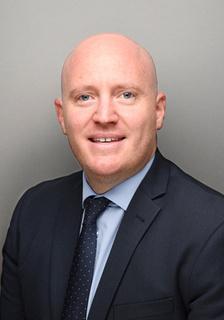

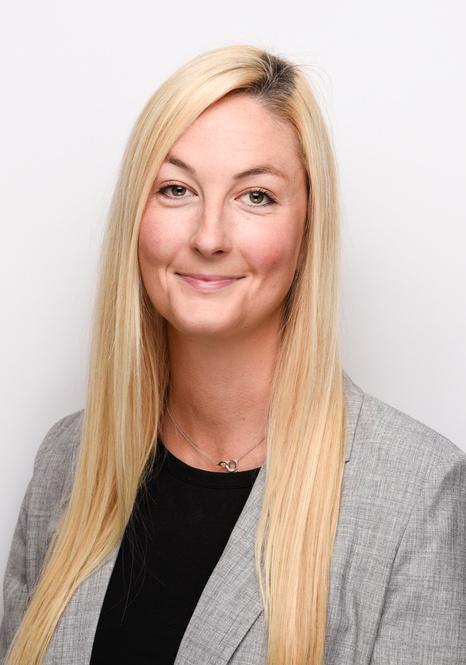


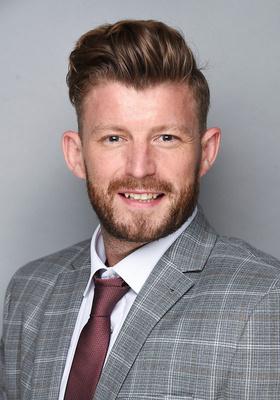
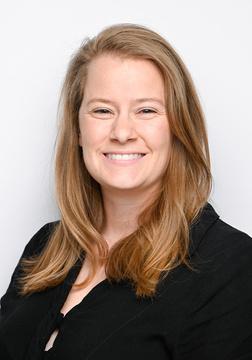


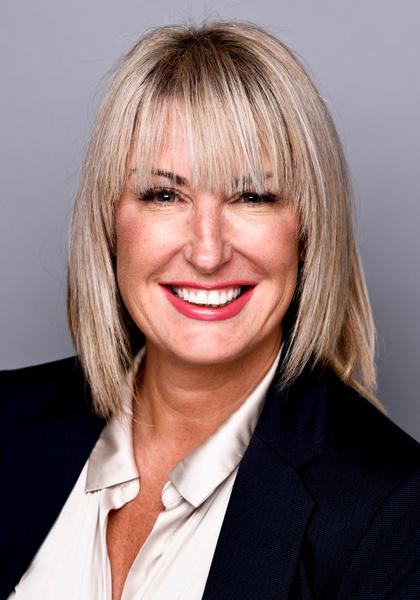




 Preetesh Tank Mathematics
Andrew Berry Science
Kayleigh Trotman English
Mohamed Nabhan Arabic A & Islamic
Sarah Jackson Art
Fiona Temple-Smith Modern Foreign Languages
Emily Griffin History and Politics
Shona Pountain Geography
Genesco Dela Cruz Computer Science
Alan Kinsey Business & Economics
Graham Parkin DT
Harriet Chambers Music
Lucy Johnson Psychology & Sociology
Stacey Wardell Physical Education
Wahid Hegazi Arabic B
Preetesh Tank Mathematics
Andrew Berry Science
Kayleigh Trotman English
Mohamed Nabhan Arabic A & Islamic
Sarah Jackson Art
Fiona Temple-Smith Modern Foreign Languages
Emily Griffin History and Politics
Shona Pountain Geography
Genesco Dela Cruz Computer Science
Alan Kinsey Business & Economics
Graham Parkin DT
Harriet Chambers Music
Lucy Johnson Psychology & Sociology
Stacey Wardell Physical Education
Wahid Hegazi Arabic B

Wahid Hegazi
Head of Arabic B
Wahid is a father of three kids one at JPS and twins at GFS, He gradua BA in English as a second language in 2005, he also holds General and Professional Postgraduate Diplomas in Teaching

Wahid has been teaching in international schools in Egypt and the UAE for sixteen years and he joined Jumeirah College in August 2018
His vision is that every student deserves a stellar education Students should be listened to, learned from and should play a pivotal role in their learning process This is vital to make their educational experience truly outstanding, realistic and holistic, it also helps build a communal sense of purpose and passion, leading to the culture of a learning community that brings inspiration and innovation to all students, encouraging them to achieve more
Key Stage 4 Arabic
All year 10 students, both Arab and non-Arab, are required by law to study the Ministry of Education Arabic curriculum for 3 lessons a week We have managed to timetable this with no loss of options
There is no requirement to study Arabic in Year 11 for non-Arabs
Arab passports holders are now required to study Arabic up to, and including, Year 13.
A small number of students may be in a position to sit the GCSE Arabic at the end of Year 10. This will be decided in January of Year 10 on an individual basis
We want to keep the option of students taking Arabic GCSE at the end of Year 11 open However, this will have to be timetabled for individual students and will only be available after consultation with the Arabic department
To that end, we have retained the Arabic GCSE (as a second language) entry, although the option will only be available for student choice at the end of Year 10, and will be decided on an individual basis.
For any further clarification, please contact Mr Nabhan for Arabic as a first language, or Mr Hegazi for Arabic as a second language

Kayleigh Trotman
Head of English
Graduating from the University of Reading in 2008 with a BA (Hons) in English and History, Kayleigh completed Journalism training in London where she interned for both The BBC and Bauer Media.

In 2012, she briefly returned to her homeland of Wales to achieve a PGCE in English at Swansea University, then spent several years teaching English Language and Literature in Surrey, before arriving at Jumeirah College in 2015 where she has enjoyed the roles of Head of Fihri House and English KS4 Coordinator.
Kayleigh’s main aim in education has always been to inspire students to become life-long readers and learners; she strongly believes that improving literacy and igniting creativity is fundamental to securing successful and fulfilling futures.
Key Stage 4 English
Students study the new AQA GCSEs for both Language and Literature These specifications have been written in response to the recent changes brought in by the UK Government. Students will no longer submit any coursework and there is an increased emphasis on the technical accuracy of students’ writing
All students will study both Language and Literature in their four English lessons per week. They will receive two GCSE qualifications.
Examination Board and Specification Code: AQA English Language (Code: 8700)
Why study English Language?
English Language is the study of oral and written communication. It teaches broad based literacy skills using a wide range of sources to allow students to develop their ability to read for meaning, infer, deduce, communicate with clarity, creativity, coherence and flair both in speech and in writing English Language is well known as a subject that links to all other areas of the curriculum, so good grades will help to move students on to any AS/A2 Level as the skills are integral to any further higher level study
What is involved?
The analysis of how writers create meaning in literary and non-literary genres such as autobiographies and newspapers, the study of how language is used to shape readers’ understanding of the world and how we interpret it The composition of written texts for analytical, discursive, creative and descriptive purposes The study of English Language will develop students’ ability to:
Demonstrate skills in speaking, listening, reading and writing necessary to communicate with others confidently, effectively, precisely and appropriately
Express themselves creatively and imaginatively
Understand the patterns, structures and conventions of written and spoken English Select and adapt speech and writing to different situations and audiences
Become critical readers of a range of texts, including multi-modal texts
Use reading to gain access to knowledge and to develop their own skills as writers Connect ideas, themes and issues, drawing on a range of texts
How will I be assessed?
There is no coursework element in this new GCSE
There are two exams, taken at the end of the course in Year 11
Paper 1: Explorations in Creative Reading and Writing 50%:
Students will be given one literary fiction text
Students will be given a series of short and long answer questions on this text, relating to the subject matter, the writer’s views and methods
Students will also be asked to write either a descriptive or narrative piece of writing, often in response to a visual stimulus
Paper 2: Writers’ Viewpoints and Perspectives 50%:
Students will be given two texts, one Literary Non-Fiction and one Non-Fiction
Students will be given a series of short and long answer questions, one of which will ask them to compare the two given texts
Students will also be asked to write, presenting a viewpoint on a given subject
Speaking and Listening:
This component will be examined separately.
Students will be awarded a separate grade for an individual presentation
Examination Board and Specification Code: AQA English Literature (Code: 8702)
Why study English Literature?
This specification offers the freedom of choice in approaches to teaching and learning, flexibility in choice of texts and tasks whilst providing a rigorous summative assessment of candidates’ skills and abilities
What is involved?
The specification is based on substantial study of at least three complete texts in depth, with breadth of study across a range of modern and heritage literature This course has a skills-based approach to the assessment of responses to literature, rewarding freshness and individuality This specification complements the AQA GCSE in English Language specification and each develops and builds upon the skills utilised within the other
This course will enable students to:
Understand that texts from the English, Welsh and Irish literary heritage have been influential and significant over time and explore the meaning of these today Become critical readers of fiction, prose, poetry and drama Experience different times, cultures, viewpoints and situations as found in literary texts Connect ideas, themes and issues, drawing on a range of texts
Use reading to gain access to knowledge and to develop their own skills as writers Experience different times, cultures, viewpoints and situations as found in literary texts Connect ideas, themes and issues, drawing on a range of texts
Use reading to gain access to knowledge and to develop their own skills as writers
How will I be assessed?
All exams are closed book. Students will not take copies of the texts into the exam.
Paper 1: Shakespeare and the 19th Century Novel 40%:
Students will answer one question on the Shakespeare text and one question on the 19th Century novel that they have studied. Teachers will choose texts appropriate for their classes.
Paper 2: Modern Texts and Poetry 60%:
Students will answer one question on the modern text that they have studied and one question on two poems from an anthology of poetry
Students will also answer a question that asks them to compare two unseen poems.
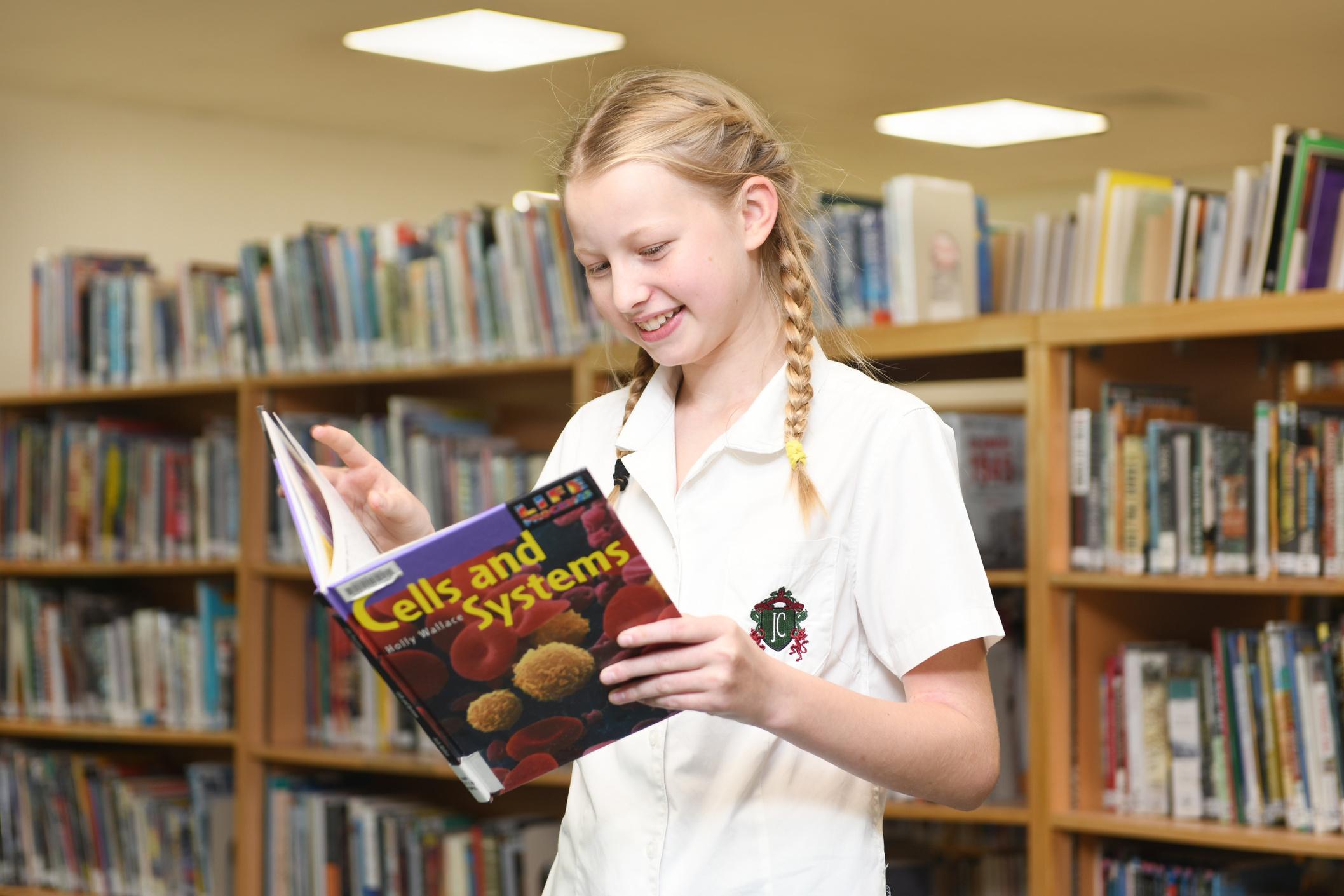


Preetesh Tank
Head of Mathematics
Preetesh graduated in 2010, with an BEng in electrical and electronic engineering from Loughborough University, before pursuing a career in teaching He successfully completed a GTP in Secondary Math’s Teaching the following year

Preetesh completed his NQT and RQT training in the UK whilst being promoted to various roles in a mathematics team including KS3 coordinator and intervention coordinator Preetesh’s first foray into international teaching saw him move to Shanghai as a mathematics in English specialist in 2014 Preetesh then moved back to UK where he worked as a 2nd in Department, before becoming Head of a department at a brand-new school in Cambridgeshire.
He moved to Dubai in 2019 where he joined JC as the Head of Mathematics Department He has passion for teaching mathematics for understanding, and enjoys the pedagogical training of teachers, delivering mathematics He believes that every student can enjoy mathematics, and that teaching should be inspiring and engaging
Key Stage 4 Mathematics
There are two different pathways a student can follow in GCSE Mathematics All students will start on the Higher Tier and adjustments will be made to class sets in the first term of Year 10 to allow a small number of students to follow the Foundation Tier, if this is more appropriate to them. There are four lessons on the timetable per week devoted to Mathematics. The appropriate pathway is selected for each student, depending on their own individual progress and achievement in previous years
Students following both the Higher and Foundation Tier courses will study the course over the entirety of Year 10 and 11, sitting the examination in the summer of Year 11 Students in sets 1 and 2 are likely to achieve grades 6 to 9 in the GCSE. Students in set 3 are likely to achieve grades 4 or 5.
Students in set 1 who are able to follow a slightly accelerated pace of study will also follow an enrichment program, leading to a further mathematics qualification in Year 11 However, no students will sit the GCSE Mathematics examination early, as has been done in previous years
Examination Board and Specification Code: EDEXCEL Mathematics (9-1) (Code:1MA1)
The Edexcel GCSE in Mathematics qualification requires students to:
Develop knowledge, skills and understanding of mathematical methods and concepts, including:
Number
Algebra
Ratio, proportion and rates of change
Geometry and Measures
Probability
Statistics
Use knowledge, skills and understanding to make connections between mathematical concepts Apply the functional elements of Mathematics in everyday and real-life situations
The course also gives students the opportunity to develop the ability to:
Acquire and use problem-solving strategies
Select and apply mathematical techniques and methods in every day and real world situations
Reason mathematically, make deductions and inferences and draw conclusions
Interpret and communicate mathematical information in a variety of forms appropriate to the information and context
How will I be assessed?
Three written papers at the end of the course: one non-calculator paper and two calculator papers, each contributing a third to the final grade Foundation (grades 1-5) and Higher (grades 4-9) Tier papers available
Each paper is 1 hour 30 minutes
80 marks on each paper

Head

Andrew is an experienced Head of Science with more than fifteen years classroom practice behind him. Previously working in both A level and IB schools has forged a keen interest in how Science works Andrew believes that students learn best by planning, conducting and evaluating their own experimental work This style of learning will become more prevalent at Jumeirah College at all phases as he in-beds some of his ideas across the Science department.
Due to a major overhaul of the GCSE Science Specification we will now offer the Combined Science Course as our primary qualification This comprises of 6 lessons per week, two in each of the three science disciplines The revised specification is much more rigorous and will therefore prepare students for further study in science more effectively than previous qualifications did.
Students taking the Combined Science Qualification will achieve two GCSE grades These are obtained by sitting 6 exams at the end of Year 11 with each exam lasting for 1hr and 15mins each
Key Stage 4 Science - Triple Science:
The Triple Science Qualification will be offered as an option to students who meet the entry requirements. It is recommended that students should have an end of Year 9 anticipated grade of 6D or above This would allow students to access the more challenging Triple content The Science department will be happy to have individual conversations with students who have an anticipated grade of 5m
Students opting for Triple Science will have 9 Science lessons a week, three in each discipline. This pathway requires students to use one of their four option choices in order to complete. It is recommended for students who are serious and passionate Scientists It is a big commitment Students will need to select Triple Science when completing the GCSE Options form
Students who select the Triple Science Qualification will achieve three separate GCSE grades in Biology, Chemistry and Physics. These are obtained by sitting two 1 hour and 45 minute examinations in each subject.
Examination Board and Specification Code: AQA GCSE Combined Science Trilogy (Code: 8464)
This new course is the predominant pathway through GCSE and will offer a very rigorous and comprehensive two years of scientific study. It will also prepare students well for A-Level studies in any one of the Science disciplines. Students on the combined course will receive 2 GCSE grades for Science
Biology:
What are animals and plants built from?
How do dissolved substances get into and out of cells?
How do plants obtain the food they need to live and grow?
What happens to energy and biomass at each stage in a food chain?
What happens to the waste material produced by plants and animals?
What are enzymes and what are some of their functions?
How do our bodies keep internal conditions constant?
Which human characteristics show a simple pattern of inheritance?
Chemistry:
How do sub-atomic particles help us to understand the structure of substances?
How does structure influence the properties and uses of substances?
How much can we make and how much do we need to use?
How can we control the rates of chemical reactions?
Do chemical reactions always release energy?
How can we use ions in solutions?
Physics:
How can we describe the way things move?
How do we make things speed up or slow down?
What happens to the movement energy when things speed up or slow down? What is momentum?
What is static electricity? How can it be used and what is the connection between static electricity and electric currents?
What does the current through an electrical current depend on?
What is mains electricity and how can it be used safely?
How will I be assessed?
Students will sit 6 exams at the end of Year 11 There will be two Biology, two Chemistry and two Physics exams, each lasting 1 hour and 15 minutes. There is no coursework component to this GCSE and therefore the final two grades achieved will be taken from the performance across all 6 papers.
Head of Subject: Ms K Wing
Examination Board and Specification Code: AQA GCSE Biology (Code: 8461)
Biology GCSE counts as a ‘separate science’ at GCSE and provides a firm foundation for studying the subject at A-level It will be taken with both GCSE Chemistry and Physics
Students opting for the Triple course will receive 3 GCSEs, one in each Science
Throughout the two years, students will complete a series of required practical experiments which are designed to improve problem solving, observation, analysis and interpretation of data Students will record all experiments formally in the style of traditional lab reports at the request of higher educational institutions
How will I be assessed?
Students will complete 2 exams at the end of Year 11, each one lasting for 1 hour and 45 minutes. There is no coursework attached to the GCSE, meaning all marks come from these two exams
Head of Subject: Mr A Khan
Examination Board and Specification Code: AQA GCSE Chemistry (Code: 8462)
Chemistry GCSE counts as a ‘separate science’ at GCSE and provides a firm foundation for studying the subject at A level It will be taken with both GCSE Biology and Physics Students opting for the Triple course will receive 3 GCSEs, one in each Science
Throughout the two years, students will complete a series of required practical experiments which are designed to improve problem solving, observation, analysis and interpretation of data Students will record all experiments formally in the style of traditional lab reports at the request of higher educational institutions
Students will complete 2 exams at the end of Year 11, each one lasting for 1 hour and 45 minutes. There is no coursework attached to the GCSE, meaning all marks come from these two exams
Head of Subject: Mr Hagar
Examination Board and Specification Code: AQA GCSE Physics (Code: 8463)
Physics GCSE counts as a ‘separate science’ at GCSE and provides a firm foundation for studying the subject at AS level It will be taken with both GCSE Biology and Chemistry Students opting for the Triple course will receive 3 GCSEs, one in each Science
Throughout the two years, students will complete a series of required practical experiments which are designed to improve problem solving, observation, analysis and interpretation of data Students will record all experiments formally in the style of traditional lab reports at the request of higher educational institutions
How will I be assessed?
Students will complete 2 exams at the end of Year 11, each one lasting for 1 hour and 45 minutes. There is no coursework attached to the GCSE, meaning all marks come from these two exams.
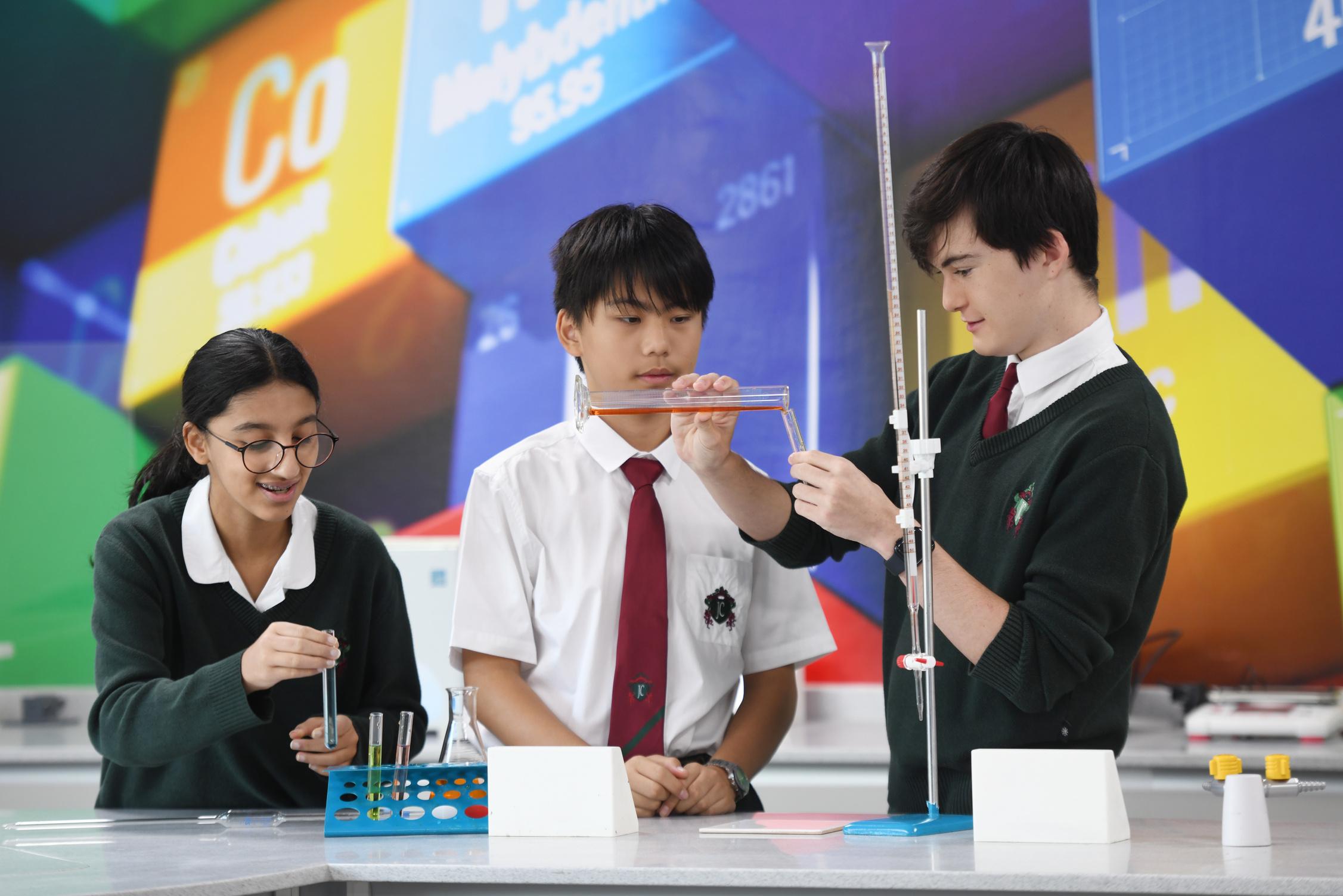

Subjects
Arabic
Art and Design
Business Studies
Computer Science
Design and Technology (DT)
Drama
Economics French Geography
History
Information and Communication Technology (ICT)
Music
Physical Education (PE)
Psychology
Spanish
Triple Science
Examination Board and Specification Code: Edexcel Pearson (Code: 1AA0)
Why study Arabic?
Learn many skills which are useful in a wide range of careers, such as the ability to communicate clearly, be confident about speaking in public, use problem solving strategies and write coherently The subject has been developed to help students of all abilities progress and develop a passion for language
Add an international dimension to your choice of GCSE subjects, which is something many employers and higher education providers look for in an employee.
Have greater opportunities to work and/or study abroad, or work for companies in the UK with international links
Discuss your interests, ideas and opinions with other people who speak Arabic
The assessments are accessible to all students and provide a real world focus
What will I learn?
GCSE Arabic helps you explore a wide range of topics, from celebrations and festivals, through getting by as a tourist in Arabic-speaking countries to international campaigns and events You will learn about Arabic culture through a range of interesting topics which will add to your understanding of the language and country

Four exams are taken, worth 25% each You can choose between foundation or higher level Arabic and will be given a final grade between 1 and 9, with 9 being the highest
Listening and understanding in Arabic 50 marks
This requires you to listen to recordings in Arabic and answer questions on what you hear Some of these questions will be multiple-choice and some will require you to write short answers in English and Arabic
Reading and understanding in Arabic 50 marks
You will be asked questions from a piece of Arabic text. Some of these questions, will be multiple-choice and some will require you to write short answers in English and Arabic Texts will be from various Arabic sources such as emails, magazines and books You will also be required to translate sentences or a short passage from Arabic into English out loud
Writing in Arabic 60 marks
The foundation paper requires you to write a passage about a photo/picture. Two topics will be provided, you will make a choice between these and write a short and long passage of text on the chosen topic
Four topic choices are provided in the higher paper, on which you will write longer passages
At both levels there is also a translation exercise, from English into Arabic
Speaking in Arabic 70 marks
In this part of the exam you will do a short role play with the examiner and talk about a photo/picture. You will also talk about two of the topics you have studied
Examination Board and Specification Code: EDEXCEL Art & Design (9-1) (Code: 1AD0)


After working as an Art and Design teacher in the UK for 4 years Sarah joined Jumeirah College in 2008 as Head of Department, she worked previously as KS5 coordinator at a secondary school in Widnes in the North East of the England.
Whilst studying Fine Art at Manchester Metropolitan University, Sarah produced art work and exhibited in 4 different exhibitions in Manchester She also volunteered to work with Students in local secondary schools to raise the aspirations of students, this helped focus her passion for the teaching of Art and Design which led her to study further for her teacher qualifications.
In leading the Art and Design department, Sarah’s focus is to provide diverse and engaging curriculum lessons along with a variety of extra curricular opportunities for all ages and abilities In addition, the introduction of the JC Arts Captain, has allowed our young people to develop their leadership skills.
GCSE Art and Design is about having an adventurous and enquiring approach to art and design and enjoying the process of developing the skills to communicate your ideas There is an emphasis on building the exploration of your ideas in a sketch book and developing a very personal response to set briefs. The skills developed during this course will clearly feed into ‘A level’ and build your confidence with visual communication. You may wish to do a GCSE in Art and Design for its own sake, perhaps to form the basis of a future interest or you might wish to pursue a career where it is useful to have had experience of art, craft and design or where you will be required to use some of the skills developed during this course These might include careers in fields such as advertising, marketing, design, architecture, publishing and the media Whichever you choose, the study of Art can help you develop transferable skills, which you can take into any career.
Sarah Jackson Head of ArtExamination Board and Specification Code: EDEXCEL Art & Design (9-1) (Code: 1AD0)
What is involved?
GCSE Art and Design will encourage you to develop:
Your understanding of past and contemporary art and design and be able to produce a personal response
A working knowledge of the materials, practices and technology of art and design
The skills to investigate, analyze and experiment
The skills to express ideas and emotions and an imaginative approach
An understanding of the language and conventions of the Art world and its place in our history
How will I be assessed?
The course is assessed in two ways, through coursework and examination The coursework element provides 60% of the final GCSE grade Your coursework will be one full completed project in your sketchbook and should include research, observational studies and work showing the development of your ideas, leading to one or more final outcomes
During Year 10 you will be taught skills in drawing, printing, painting, photography, mixed media and sculpture and you will learn how to develop a full project. This project does not need to be submitted as coursework. You will begin your coursework project in the spring term of year 10
Throughout the course your teacher will guide you with your choices which will develop your strengths and those skills which you find more challenging This coursework is marked internally at the College and is then moderated by the examination board
The final externally set paper, worth 40% of the final grade, will contain suggestions for possible starting points and directions or areas of study, to help you develop your response and to give you ideas regarding your research There is a ten week preparation time, during which you should explore the theme in your sketchbook, through observational studies, artists, development of materials and develop a personal response – you can discuss it with your teacher – and prepare your response in your chosen specialism
At the end of this period you will produce a 10 hour timed final piece. Your preparatory and developmental work, along with your final piece, will then be submitted for assessment.

Alan Kinsey
Head of Business Studies

Alan earned his BA (Hons) degree in Business with Human Resource Management from the University of Cardiff, Wales in 2001. Initially delving into a career in manufacturing, he honed his expertise in supply chain management, amassing two years of valuable industry experience
In 2003, Alan made a pivotal career shift, leaving the industrial realm to pursue a PGCE in Business and Economics at Swansea University. During his initial teacher training at a prominent comprehensive school in South Wales, UK, he discovered his calling, realising that teaching was the perfect career path for him Over the next 18 years, Alan dedicated himself to education, teaching for 17 years at a state-led school in South Wales and for one year at a private establishment in England. His journey within the academic realm saw him ascend to roles such as Head of Business and Economics, Head of Faculty for Business, ICT, MFL, and Social Sciences Additionally, he was seconded to the Senior Leadership Team (SLT) to lead on curriculum development and assessment, recording and monitoring Throughout this period, Alan actively participated in various initiatives, contributing to enhanced student outcomes across diverse subject areas.
Alan's proficiency as an Examiner has been evident since 2007, where he joined a UK-based examination board His roles encompass Resource Developer, Moderator, Examiner, Reviser of question papers, and Principal Examiner responsible for establishing and maintaining marking standards for external assessments Notably, he has served as Chair of Examiners, showcasing his leadership in assessment processes
Having relocated to Dubai at the onset of the 2023/24 academic year, Alan is enthusiastic about sharing his passion for Business and Economics. His primary focus is on supporting student well-being at School and aiding them in attaining the highest academic standards
Students will study the relationship between business activity and the changing environment within which it takes place, the structure, organization and control of the main forms of business and business management in a competitive environment
Examination Board and Specification Code: AQA Business Studies (Code: 8132)
Business Studies is linked to Economics, where topics overlap in some areas so they can therefore form a good course combination. Business Studies combines well with a range of social sciences, humanities and mathematics to lead to university subjects in such areas as business, economics, law and accountancy.
Although it is important to stress that Business Studies GCSE is not essential for further study in Business Studies or a career in business it is an extremely useful foundation in the skills needed in the business world Looking to the future you can start a career in business armed with an excellent knowledge of how businesses operate In particular you will a have a head start in careers within accountancy, marketing and human resources.
What is involved?
The main course topics are:
Businesses in the real world
Influences on business
Business operations
Human resources
Marketing
Finance
How will I be assessed?
Two written papers:
Paper
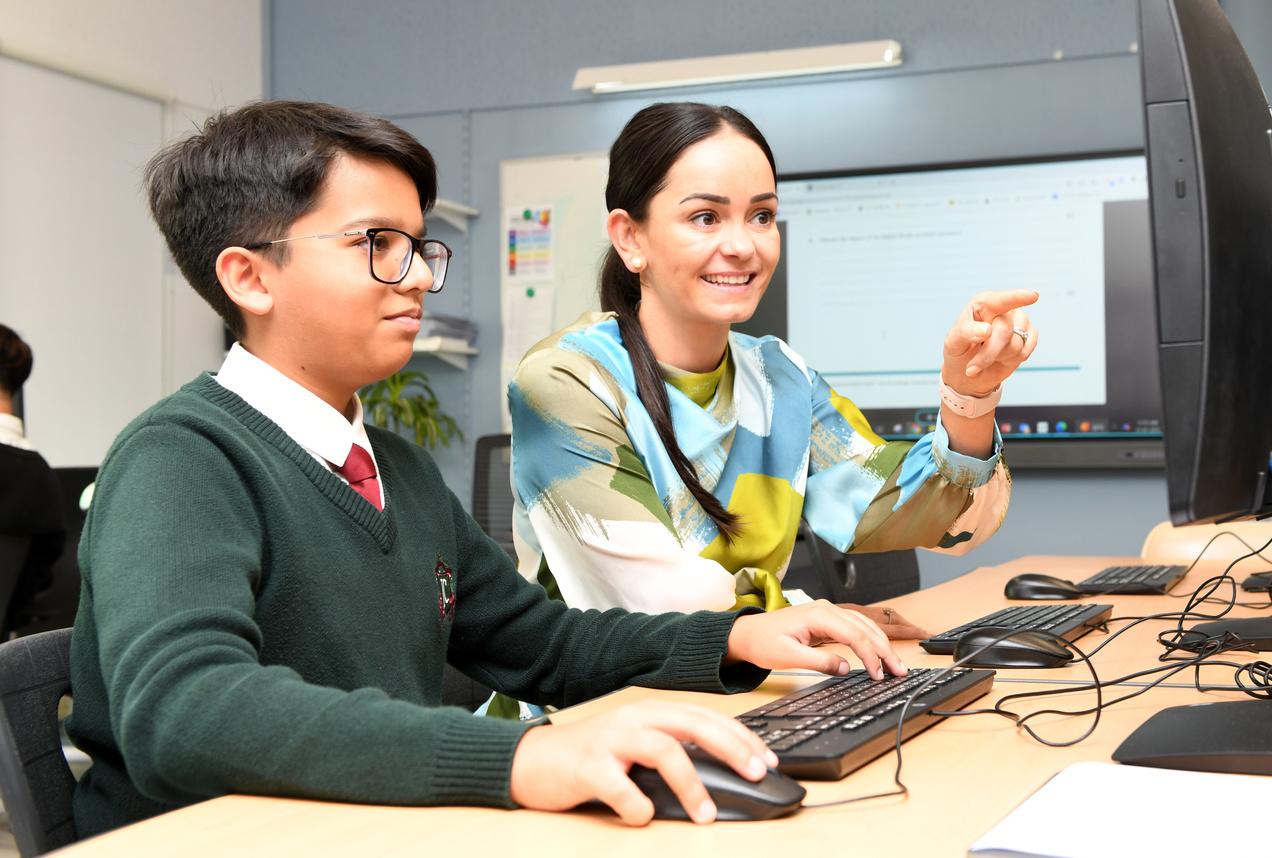

Genesco Dela Cruz is a dynamic and forward-thinking Computer Science professional committed to advancing education through innovation and technology. Currently serving as the Head of Department for ICT, Computer Science and Robotics and Innovation Coordinator at Jumeirah College, Genesco has consistently demonstrated dedication to staying at the forefront of technological advancements and leveraging his skills to create transformative solutions
Genesco embarked on his teaching journey in 2008, specializing in Street Dance. As an instructor, he honed diverse approaches to imparting routines and choreography across various different styles and proficiency levels This experience ignited a passion for teaching, prompting Genesco to pursue a teaching qualification
In 2012, he commenced his studies in ICT & Computer Science, ultimately earning a Post Graduate Certification in Education and achieving qualified teacher status in the UK
Following his initial teaching experience, Genesco dedicated the subsequent four years to instructing in London, UK. During this time, he held the roles of Teacher of ICT & Computer Science and KS3 Coordinator In 2016, he made the decision to relocate to the UAE, Dubai
Before taking on the Head of Department position in 2023, Genesco played a pivotal role of leading and developing Computer Science by introducing effective resources, strategies, and techniques for delivering the subject successfully
His proficiency in managing timelines ensured that the content is taught accurately and efficiently, fostering a conducive learning environment.
In 2019, Genesco was appointed Innovation Coordinator and founded “The Student Innovation Team” This provided students with leadership opportunities and collaborative efforts to develop innovative solutions for school-related issues. Some notable projects include the creation of a Leaderboard scoring system for Sports Day, a Library booking system, and JC Daily website.
Examination Board and Specification Code: Cambridge IGCSE (Code:0984)
Aims and learning outcomes:
The IGCSE specification in Computer Science encourages students to be inspired, moved and challenged by following a coherent, satisfying and worthwhile course of study It helps learners to gain an insight into related sectors It prepares the students to make informed decisions about further learning opportunities and career choices
Through the study of Computer Science students will be able to develop computational thinking skills, problem solving and develop skills in a high level programming language Computer Science is about delving deeper into the fundamentals of Computers, both from a hardware and software perspective In a world increasingly reliant on apps and automated systems, it is imperative that students learn about algorithms and software, allowing students to be more than users and to instead become creators of these systems
Difference between Computer Science and ICT:
Computer Science is quite different from Information and Communication Technology (ICT) ICT is about the use of computers and their applications. Computer Science is about their design, implementation and understanding of how computers operates
To use the analogy of a car, ICT is the equivalent of teaching a person how to drive a car, and how to navigate it and use the controls
Computer Science is the equivalent of teaching automotive engineering: how the clutch works, how to design new cars, and how to maintain existing ones Computing is more than just programming
Computer Science is a demanding but rewarding course It is best suited to students who have enjoyed the Computer Science and Programming aspects of the KS3 curriculum It is also suited to students who are willing to challenge themselves or want to learn programming and how the insides of a computer operate It will test the students problem solving and critical thinking skills at a high level In return, the students will gain a broad set of skills which can be transferred to many types of courses including further study in medicine, math's and engineering
How will it be assessed?
Paper 1 Computer Systems (Examination 50% of the qualification)
This unit covers the body of knowledge about computer systems on which the examination will be based This examination will assess understanding of the theory content of the specification with a mixture of short, medium and longer answer questions The theory component covers modern technologies such as block chain, artificial intelligence and robotics
Paper 2 Algorithm, Programming and Logic (Examination 50% of the qualification)
This unit covers the body of knowledge about programming concepts, problem solving skills and databases The questions will assess the theoretical application of programming and algorithms Full specification and further information can be found at the link below:
https://www.cambridgeinternational.org/programmes-and-qualifications/cambridge-igcse-9-1-computer-science0984/


After working as a Design and Technology teacher in the UK for 9 years Graham joined Jumeirah College in 2015 as Head of Department, he worked previously as KS3 and college coordinator at the same secondary school he attended as a student, in the North East of the England.
Whilst studying Product Design at Nottingham Trent University Graham volunteered with the Students in Classrooms programme, working with local schools to raise the aspirations of students, this helped focus his passion for the teaching of design which led him to study further for his teacher qualifications.
After working as a Design and Technology teacher in the UK for 9 years Graham joined Jumeirah College in 2015 as Head of Department, he worked previously as KS3 and college coordinator at the same secondary school he attended as a student, in the North East of the England.
Whilst studying Product Design at Nottingham Trent University Graham volunteered with the Students in Classrooms programme, working with local schools to raise the aspirations of students, this helped focus his passion for the teaching of design which led him to study further for his teacher qualifications. Why study Design and Technology?
Students must have an interest/passion in designing and making things. This course encourages extensive use of designing, testing, planning, materials, prototyping, CADCAM, analysis, evaluation and graphic communication to present a design solution for a given situation or problem
All design-related career choices will benefit from having a GCSE in Design and Technology because of the opportunity to explore, share and analyse ideas to a sophisticated level Employers and universities alike view Design and Technology as invaluable in terms of exposing students to project based work and problemsolving approaches in design, which is an essential skill for any serious designer.
Examination Board and Specification Code: AQA Design & Technology (Code: 8552)
This subject can lead into A level Product Design, a very useful qualification to access many degree courses including design, engineering, architecture and material sciences Indeed many students at Jumeirah College who have studied A level Product Design are now currently studying interior design, graphic products, mechanical, chemical, electrical, civil and sports engineering, architecture, product design and materials’ science to name but a few courses.
What is involved?
Year 10 will include a variety of small projects which encourage an innovative approach and embed the essential skills for designing and making Year 11 will consist of one major project (NEA) which will be assessed through a design and make portfolio, the context of this project will be available in June of Year 10
Students will focus on core technical principles, specialist technical principles in two material areas and the principles in designing and making throughout the course which will prepare them for the examination in Year 11
How will I be assessed?
Paper 1: 2 hour written paper worth 50% (100 marks):
The written paper is split into three sections where all questions must be answered
Content:
Section A - Core technical principles
Section B - Specialist technical principles
Section C - Designing and making principles
NEA: Non-examined assessment worth 50%, approximately 35 hours (100 marks):
Students produce a substantial portfolio of evidence along with a prototype based on a contextual challenge set by the exam board Students will use an iterative design process covering the following assessment criteria:
Identifying and investigating design possibilities
Produce a design brief and specification
Generating design ideas
Developing design ideas
Realising design ideas
Analysing & evaluating

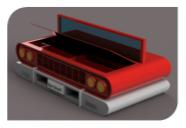

 Ryan Burke Head of Drama
Ryan Burke Head of Drama

Ryan attended Liverpool John Moore’s University where he obtained his degree in Drama and then continued to further his education at Liverpool Hope University to complete a PGCE in Performing Arts Before arriving in Dubai Ryan has spent the last two years in the International school of Moscow which brought him to a decade of teaching.
Before entering the profession, Ryan was a workshop leader for ‘The Rubbish Shakespeare Company’ for which he performed and worked in many schools around the country for several years, enhancing student’s Shakespearian knowledge and performance skills
Ryan has enjoyed success performing professionally for the theatre company ‘Dream think speak’ and has also had experience directing productions as a curriculum director in the well-established ‘Liverpool Institute of Performing Arts’.
Ryan joined Jumeirah College as the Head of Drama in 2021 and hopes to utilise his knowledge of the subject and instill this within the students of the school He believes that the creative arts play a fundamental part in the development of the whole child, which in turn promotes success on a global level
Why study Drama?
IGCSE Drama is the perfect subject for you if you have a very good command of performing and want to deepen your understanding of drama performance with theory You should have an interest in gaining a greater understanding of how theatre and plays work, and a creative instinct for communicating your views through practical exploration If you are considering a career in the theatre/performing arts industries, studying drama at this level will provide you with an excellent level of experience in performance skills. However, the IGCSE Drama qualification will give you a superb grounding in far more than just acting Successful Drama students go on to study subjects such as law, English, history, journalism, business studies and psychology at university A wide range of careers from teaching to management, business to politics all rely on the core elements of presentation, leadership, creativity and decision-making that are intrinsic to the Drama course
The course will demand a practical response in light of a script, monologue and devising pieces, that will be submitted to the exam board. This requires a collaborative effort and commitment from students especially within their own time. The course is weighted more towards the practical side, giving students a better platform to express themselves in comparison to other subjects. The IGCSE Drama course will give you the opportunity to study play texts, theatrical practitioners and dramatic theory, whilst utilising them within a performance context.
How will I be assessed?
The IGCSE Drama course consists of 2 components (1 internally assessed/moderated and 1 externally examined). The course is 60% practically based, with 40% final written examination.
Component 1: Written examination 2 hours 30 minutes (40% of the qualification) 80 marks:
Practical exploration of two set texts (extract)
Devised analysis
Assessment overview:
Candidates answer:
All questions in Section A 30 marks
Two questions in Section B (one compulsory question and one question from a choice of two) 25 marks
Both questions in Section C 25 marks
Externally assessed
Component 2: Performance Coursework 120 marks (60% of the qualification)
Assessment overview:
Candidates submit three pieces of practical work:
Individual performance based on an extract from a play Group performance based on an extract from a play Group performance based on an original devised piece
Internally assessed and externally moderated
Examination Board and Specification Code: AQA Economics (Code: 8136)
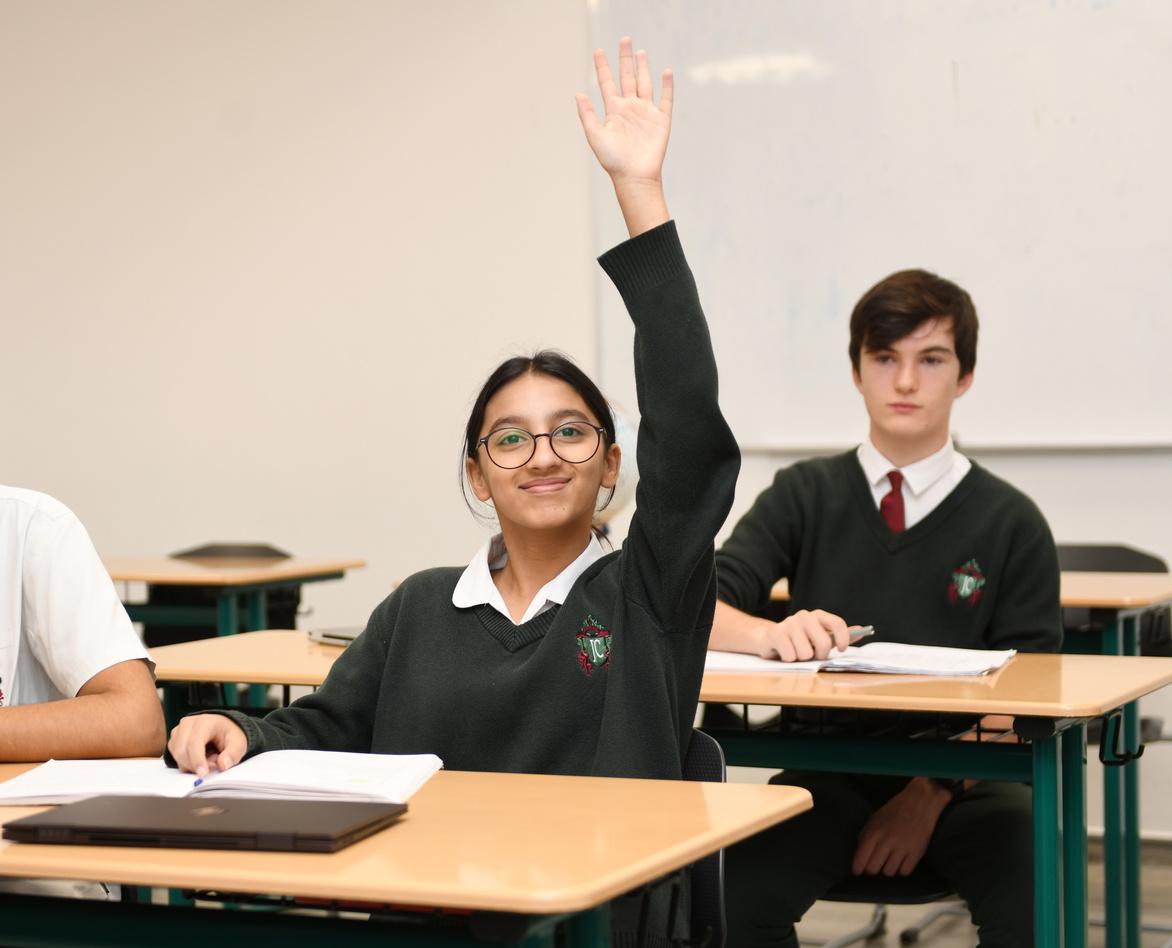 Alan Kinsey Head of Economics
Alan Kinsey Head of Economics
Alan earned his BA (Hons) degree in Business with Human Resource Ma Wales in 2001 Initially delving into a career in manufacturing, he honed p upp y g , amassing two years of valuable industry experience.

In 2003, Alan made a pivotal career shift, leaving the industrial realm to pursue a PGCE in Business and Economics at Swansea University. During his initial teacher training at a prominent comprehensive school in South Wales, UK, he discovered his calling, realising that teaching was the perfect career path for him. Over the next 18 years, Alan dedicated himself to education, teaching for 17 years at a state-led school in South Wales and for one year at a private establishment in England His journey within the academic realm saw him ascend to roles such as Head of Business and Economics, Head of Faculty for Business, ICT, MFL, and Social Sciences Additionally, he was seconded to the Senior Leadership Team (SLT) to lead on curriculum development and assessment, recording and monitoring Throughout this period, Alan actively participated in various initiatives, contributing to enhanced student outcomes across diverse subject areas
Alan's proficiency as an Examiner has been evident since 2007, where he joined a UK-based examination board His roles encompass Resource Developer, Moderator, Examiner, Reviser of question papers, and Principal Examiner responsible for establishing and maintaining marking standards for external assessments Notably, he has served as Chair of Examiners, showcasing his leadership in assessment processes
Having relocated to Dubai at the onset of the 2023/24 academic year, Alan is enthusiastic about sharing his passion for Business and Economics. His primary focus is on supporting student well-being at School and aiding them in attaining the highest academic standards.
Why study Economics?
Economics GCSE is an essential grounding for further study of Economics at A level and degree level The skills learned in Economics lend themselves to a wide range of careers including finance, banking, international development and insurance
Examination Board and Specification Code: Pearson Edexcel Economics (Code: 4EC1)
What is involved?
This subject looks at economic activity through the lens of consumers, producers, government and the workings of the global economy. As students go through the course they’re presented with opportunities to focus on real-world issues. Students will consider and reflect upon moral, ethical and sustainable issues that arise as a result of the impact of economic activity
Students will use their economic knowledge and skills to investigate national and global economic situations and issues from the last 15 years Students will also be aware of the policies that governments have used to attempt to manage these situations and issues
Students will develop quantitative skills relevant to the subject content and will be able to make relevant calculations from economic data and be able to interpret data presented in the form of graphs and charts
Students will be expected to question the theories that they learn and appreciate the multiple interpretations of economic events. Students will study the following topics:
The market system:
The economic problem and Economic assumptions
Demand, supply and market equilibrium
Elasticity
The mixed economy and Externalities
Business economics:
Production, productivity and division of labour
Business costs, revenues and profit
Business competition
The labour market
Government intervention
Government and the economy:
Macroeconomic objectives
Government policies
Relationships between objectives and policies
The global economy:
Globalisation
International trade
Exchange rates
Students should complement their study of Economics by keeping up to date with current economic issues in the news It is therefore important for students to read a quality newspaper on a regular basis
How will I be assessed?
Two written examinations to be taken in June of Year 11:
Paper 1
How markets work 1 hour 30 50% of marks
Paper 2
How the economy works 1 hour 30 50% of marks
 Fiona Temple-Smith Head of Modern Foreign Languages
Fiona Temple-Smith Head of Modern Foreign Languages

Upon graduating with a BA Joint Hons in 1993, Fiona worked in global business development for 14 years, where her language skills proved an invaluable asset In 2007 Fiona moved to the UK to complete her PGCE at the University of Cumbria, and went on to teach at Dallam, an IB World school, from 2008 to 2015. Here Fiona held a number of posts such as Head of CLIL, Head of Department and Professional Mentor. An innovative middle-leader, Fiona has successfully led on whole school initiatives, and collaborated with colleagues to raise standards in her own school and others As Head of CLIL, Fiona led on a highly successful bilingual education initiative, with exceptional early entry GCSE results in Year 9 and for which the school achieved national recognition, winning the British Academy Languages award in 2014 In 2013, Fiona completed a National Professional Qualification in Middle Leadership and trained as a Good to Outstanding Facilitator, working to improve standards of teaching and learning in her own school and others within the South Lakes Federation.
In 2015, Fiona joined the Modern Foreign Languages department at Jumeirah College and became Lead Professional Mentor for the iPGCE programme In 2019, Fiona worked as Lead Associate for the HPL iFoundation Programme and very much enjoyed providing training and support for CIS to achieve the award
Fiona is passionate about providing an aspirational, engaging and inclusive curriculum; one that encourages intellectual curiosity, enhanced communicative skills, confidence, independence, risk-taking and resilience, thereby developing lifelong learning skills She firmly believes that embedding these 21st Century skills gives our students the tools they need to succeed in our ever-evolving world
Head of Department:
Examination Board and Specification Code
Ms F Temple-Smith
AQA French (Code: 8658)
Students are encouraged to choose at least one Modern Language at GCSE level
Why study languages?
French is a very useful language for work and pleasure in later life The ability to speak and understand a foreign language is an important part of a person ’ s overall education They might need to travel to another country or communicate with other nationalities in any aspect of work It is therefore useful for most careers, but especially in the travel and tourism industry, international business, foreign office, finance, technology, journalism and teaching.
GCSE French helps students develop their language skills in a variety of contexts and broadens their understanding of the culture of countries and communities where French is spoken It encourages enjoyment of language learning and the recognition that language skills enable students to take their place in a multi-lingual global society
What is involved?
The GCSE course covers three distinct themes as well as related sub-topics. These themes apply to all four skills. Students are expected to understand and provide information and opinions relating to their own experiences and those of other people, including people in countries/ communities where French is spoken Students sit their examinations at the end of the GCSE course in Year 11 in all four skills Each paper counts for 25% of the overall marks The main themes studied are:
Identity and culture
Local, national, international and global areas of interest
Current and future study, and employment
Scope of study:
As students progress during their French GCSE, they will learn to:
Communicate and interact effectively in speech, for a variety of purposes across a range of contexts
Communicate effectively in writing for a variety of purposes
Understand and respond to different types of written and spoken language
Understand and use more accurately a wider range of vocabulary and structures, including some unfamiliar language
Understand issues and opinions; discuss issues and give opinions
How will I be assessed?
GCSE French has a Foundation Tier (grades 1 - 5) and a Higher Tier (grades 4 - 9) Students may be entered for either Foundation Tier or Higher Tier, but they must enter the same tier for all four skills
1: Listening 25% of GCSE
The test will be pre-recorded using native speakers Students’ comprehension will be tested by a range of question types, normally requiring non-verbal responses or responses in English
Foundation Tier 35 minutes 40 marks
Higher Tier 40 minutes 50 marks
2:
Students will carry out one role-playing situation, discuss a stimulus card and take part in general conversation which involves asking and answering questions and exchanging opinions
Foundation Tier 7 - 9 minutes 60 marks
Higher Tier 10 - 12 minutes 60 marks
Students’ comprehension will be tested by a range of question types, normally requiring non- verbal responses or responses in English Higher tier students will be given material which will include some complex, unfamiliar language in a range of registers together with non-factual and imaginative material including narrative.
Foundation Tier 45 minutes 60 marks
Higher Tier 6 0 minutes 60 marks
At Foundation level students produce writing tasks which demonstrate their ability to write short texts using simple sentences and familiar language accurately, to convey meaning and exchange information
At Higher level students write to present facts and express ideas and opinions They also make accurate use of a variety of vocabulary and grammatical structures, including some more complex forms, to describe and narrate with reference to past, present and future events.with reference to past, present and future events.
Foundation Tier 60 minutes 50 marks
Higher Tier 1 hour 15 minutes 60 marks


Examination Board and Specification Code: Edexcel International 9-1 GCSE (4GE1)

Shona Pountain Head of Geography

Why should I study Geography?
In order to answer this difficult question, ask yourself what you enjoy about the study of Geography. Try these questions Do I want to:
Learn more about the world I live in?
Develop skills that will help me in other areas, such as ICT and research?
Undertake fieldwork and learn outside of the classroom?
Work in a team with other students?
Learn through investigating and doing, not listening and reading?
Study a subject which is interdisciplinary and will link to your other GCSE choices?
Why should I study IGCSE?
Edexcel IGCSE courses are international in outlook, but retain a local relevance The syllabuses provide opportunities for contextualized learning and the content has been created to suit a wide variety of schools, avoid cultural bias and develop essential lifelong skills, including creative thinking and problem-solving. Edexcel IGCSE Geography candidates develop skills, including:
an understanding of the processes which affect physical and human environments
an understanding of location on a local, regional and global scale
the ability to use and understand geographical data and information
an understanding of how communities around the world are affected and constrained by different environments
How will I be assessed?

Examination Board and Specification Code: Edexcel History GCSE (9-1) (Code: 1HI0)

Emily Griffin
Head of History
Graduating in 2007 with a Bachelor of Arts in Politics from Keele Unive on project as a Research Assistant in Tanzania
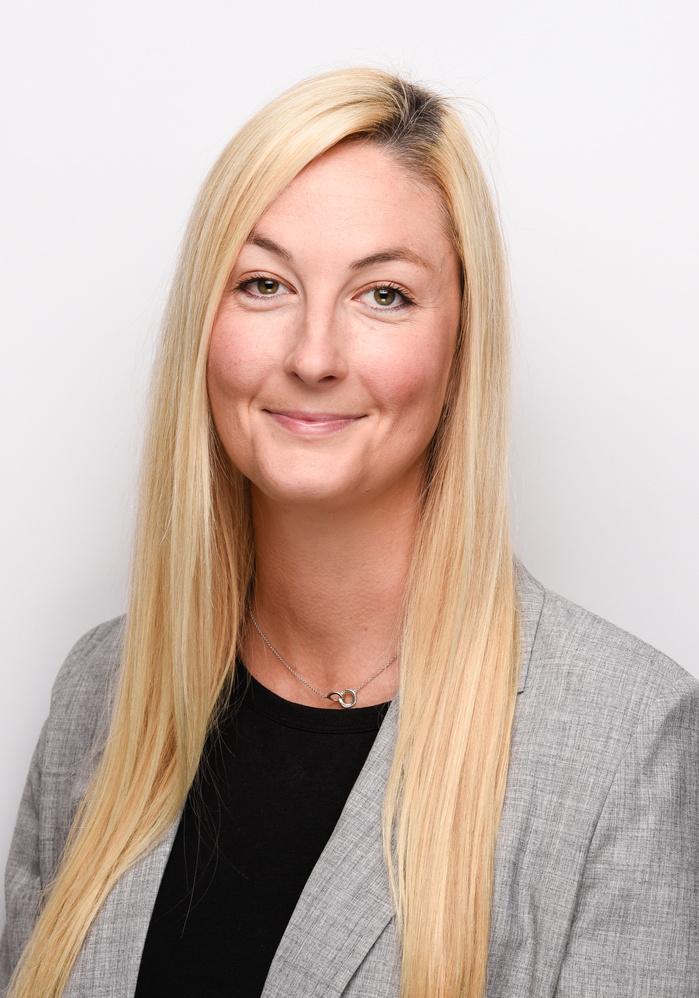
After returning to the UK in 2008, Emily began working in Westminster as a political journalist for a political magazine called Total Politics As Lifestyle Editor and Events and Production Manager, Emily worked very closely with a number of different politicians, journalists and political advisors Emily wrote and commissioned articles and blogs, and organized a number of high-profile events Emily then left the UK to become a Scuba Diving Instructor where she travelled throughout Northern Africa and Asia
After developing a passion for teaching, Emily returned to the UK and retrained as a History and Politics teacher in 2013, working in two schools as Head of History in Politics in Hertfordshire and Bedfordshire Emily joined Jumeriah College at the beginning of September 2022 Emily is incredibly passionate about both of her subjects, as history allows you to investigate and understand the world around you and politics is constantly evolving and changing the world today – there are no more relevant subjects to study
Head of Department:
Mrs K Storey
Examination Board and Specification Code: Edexcel History GCSE (9-1) (Code: 1HI0)
Why study History?
Very few subjects offer such sustained practice of the Higher Order Thinking Skills, prized by acclaimed universities and a host of top professions, than History This GCSE is designed to develop knowledge and critical skills and, unlike previous courses, is not purely content driven The course offers students with an interest in broader history the unique opportunity to study from the Medieval period, through the Renaissance and Early Modern world right up to the present day It also provides students with the chance to study the Cold War and Tudor England under the reign of one of history’s most iconic and beguiling of monarchs - Elizabeth I. Students will be assessed using a combination of short answers, source analysis questions and some more extended essay-writing tasks
History is useful for a variety of careers and is especially recommended for students aiming for careers in politics, law, investment banking, information management, human resources management, and journalism It is a widely respected and highly academic qualification that can help students gain access to a wide variety of post-16 courses and professional careers.
What is involved and how will I be assessed?
Paper 1: Thematic study and historic environment:
Section A: Medicine in Britain, c.1250 - present day
Section B: The British sector of the Western Front 1914-18: Injuries, treatment, and the trenches
Written examination: 1 hour and 15 minutes
30% of the qualification
Paper 2: Period study and British depth study:
Section A: Superpower relations and the Cold War, c 1941–91
Section B: Early Elizabethan England, c 1558-88
Written examination: 1 hour and 45 minutes
40% of the qualification
Paper 3: Modern depth study:
Weimar and Nazi Germany, 1918-39
Written examination: 1 hour and 20 minutes
30% of the qualification
Examination Board and Specification Code: Cambridge IGCSE (0983)
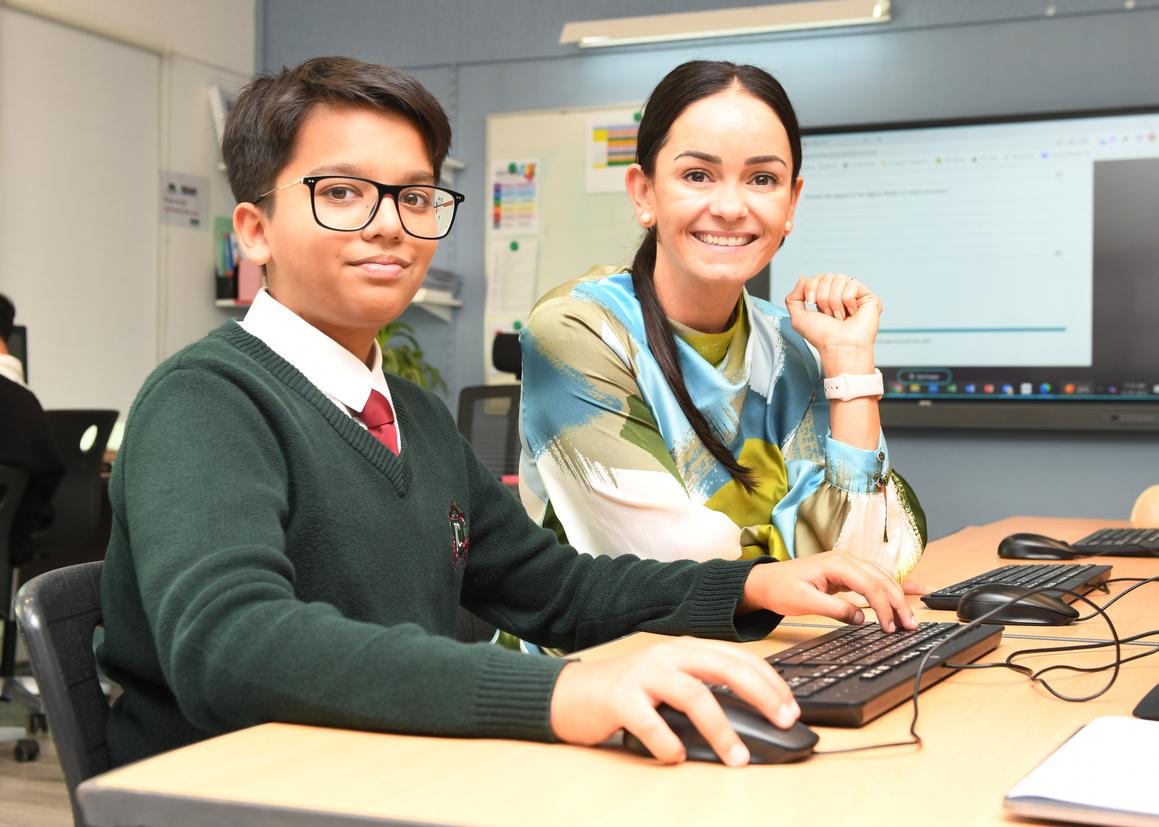

Genesco Dela Cruz is a dynamic and forward-thinking Computer Science professional committed to advancing education through innovation and technology. Currently serving as the Head of Department for ICT, Computer Science and Robotics and Innovation Coordinator at Jumeirah College, Genesco has consistently demonstrated dedication to staying at the forefront of technological advancements and leveraging his skills to create transformative solutions
Genesco embarked on his teaching journey in 2008, specializing in Street Dance. As an instructor, he honed diverse approaches to imparting routines and choreography across various different styles and proficiency levels This experience ignited a passion for teaching, prompting Genesco to pursue a teaching qualification
In 2012, he commenced his studies in ICT & Computer Science, ultimately earning a Post Graduate Certification in Education and achieving qualified teacher status in the UK
Following his initial teaching experience, Genesco dedicated the subsequent four years to instructing in London, UK. During this time, he held the roles of Teacher of ICT & Computer Science and KS3 Coordinator In 2016, he made the decision to relocate to the UAE, Dubai
Before taking on the Head of Department position in 2023, Genesco played a pivotal role of leading and developing Computer Science by introducing effective resources, strategies, and techniques for delivering the subject successfully
His proficiency in managing timelines ensured that the content is taught accurately and efficiently, fostering a conducive learning environment.
In 2019, Genesco was appointed Innovation Coordinator and founded “The Student Innovation Team” This provided students with leadership opportunities and collaborative efforts to develop innovative solutions for school-related issues. Some notable projects include the creation of a Leaderboard scoring system for Sports Day, a Library booking system, and JC Daily website.
Genesco Dela CruzExamination Board and Specification Code: Cambridge IGCSE (0983)
Why study ICT?
The IGCSE ICT qualification is ideal for anybody who is remotely interested in the field of ICT It will give a firm grounding in the fundamental concepts of ICT Career opportunities vary from being a network manager, systems analyst, programmer, database administrator, web designer, software engineer, business analyst to an ICT teacher/lecturer All students undertaking this particular course need not be naturally gifted at ICT However, a high degree of commitment and enthusiasm will be required throughout the duration of this course
What is involved?
This innovative IGCSE course is a hands on and engaging course It allows students to learn new skills and maintain an interest in this ever-changing and evolving subject It will build on young people’s love of digital devices and explores how technology impacts on every aspect of our daily lives Students who take this course will understand the benefits of using technology and know how to use ICT safely and responsibly
Students will study the following topics:

Students will:
gain knowledge and understanding of Information and Communication Technology develop skills to apply knowledge and understanding to produce ICT-based solutions develop skills of analysis and evaluation, making reasoned judgements and presenting conclusions
How will I be assessed?

 Harriet Chambers Head of Music
Harriet Chambers Head of Music

Harriet graduated with a BA (Hons) in Music and Education Studies and went on to complete her PGCE and MSc at the University of Bristol She is an experienced teacher, having taught Music at both primary and secondary schools in the UK She is an accomplished musician, specializing in orchestral music and has a passion for musical theatre. As a violinist and singer, she has developed a range of skills across a broad genre a music, something that she is keen to share and encourage among students Over the years, Harriet has performed at some of the prestigious venues around the UK with orchestras and choirs, including Exeter Cathedral, Nottingham Concert Hall and St Paul’s Cathedral
Harriet also has a keen interest for activities in addition to music From a young age, she has always been involved in sports teams, in particular hockey; at the peak of her amateur sporting career playing for teams just below the National leagues She is also a qualified Level 1 Hockey Umpire and trains others to umpire Following the active lifestyle, Harriet is a keen hiker, and has supported many Ten Tors and Duke of Edinburgh award expeditions
Specification Code: Edexcel GCSE Music (Code: 2MU01)
Why study Music?
Music at GCSE combines performing, composing and appraising Students are challenged both academically and practically, and there is an expectation to take part in the vibrant extracurricular life of the department Students should be at grade 4 or equivalent standard on their first instrument or voice before starting the course As well as academic rigour, music is practically demanding too, requiring students to master either an instrument or their voice to a high standard to achieve top grades
Music challenges a student’s ability to work alongside others to achieve a common goal; life skills are nurtured throughout this course As a result of these components, universities value Music as a qualification as it demonstrates students’ creativity, dedication, commitment and organisation skills Music GCSE is a highly recognised qualification which is beneficial regardless of the career path you choose to follow
What is involved?
Students will demonstrate skills in aural perception, musical knowledge and understanding and communication through their analysis of the four areas of study: Instrumental Music 1700 - 1820, Vocal Music, Music for Stage and Screen and Fusions GCSE Music is split into three components: Performing, Composing and Appraising The GCSE caters for a wide spectrum of abilities and provides opportunities to use music technology, including Sibelius, Logic Pro X and the College’s recording studio.
How will I be assessed?

Examination Board and Specification Code: Edexcel PE (Code: 1PE0/01)
 Stacey Wardell Head of Physical Education
Stacey Wardell Head of Physical Education
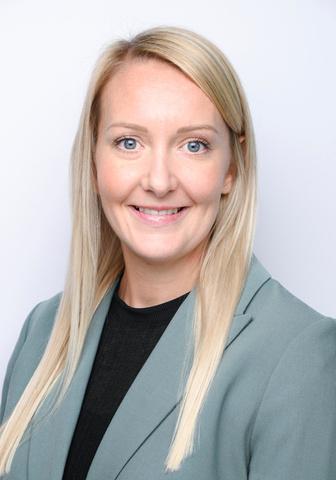
Stacey graduated from Manchester Metropolitan University with a BSc p p g a PGCE in Secondary Physical Education at Staffordshire University She has taught in the UK, Saudi Arabia and China across all phases of the school (EYFS – Y13) and has held various positions of responsibility such as Head of Girls Games, Head of Year, Head of House and Head of Department
Stacey loves all things Sport and Physical Education Growing up, she was involved in multiple sports, namely Dance, Netball and Rounders, in which she competed and represented at various levels through the different performance pathways and talent routes available in England. Her passion for dance in particular has driven her to gain a wealth of additional qualifications in Dance, Gymnastics and Trampolining to become an aesthetics specialist, which she is very excited to use in order to strengthen and enrich the PE curriculum and extra-curricular programme on offer throughout the College.
Stacey continues to play netball recreationally and is an avid gym goer to keep fit and healthy. She also thoroughly enjoys travelling to experience other cultures and traditions as well as the delicious food, with being such a huge foodie! She has made it her personal goal to visit as many countries as possible and feels very lucky to have had the opportunity to visit so many of the amazing places the world has to offer.
Examination Board and Specification Code: Edexcel PE (Code: 1PE0/01)
The GCSE PE FULL COURSE is offered to students who have demonstrated a high level of proficiency and application in PE throughout Key Stage 3 (no short course is available)
Why study Physical Education?
Physical Education is ideal for those people interested in sports and games It will enable them to gain an examination qualification in an activity which is (40%) practical and that they enjoy The majority of the final mark (60%) is based on the theory of PE and sport The theory component enables students to study the body and the reasons that we move as we do Students will also learn how we can improve our health and fitness in order to improve our sporting performance, and why we participate in certain activities
What is involved?
GCSE Physical Education students have to be talented, dedicated to hard work and improving their skills, interested in a variety of sports and knowledgeable about the theoretical aspects of physical activity.
Students must be able to perform at a high level in at least three different sports (one individual activity, one team sport and one other: either individual activity or team game.
Students must be able to apply the theory aspects of the course to their practical performances.
Students will complete a Personal Exercise Plan as a written piece of coursework which combines theoretical and practical knowledge being applied to a sport they participate in.
How will I be assessed?
Practical - 30% of total grade: Students will be taught a range of sports and activities in lessons over the 2 years. Teachers will identify the top 3 sports that students will be moderated in for their final grade. Students can also be assessed in activities that they regularly participate in that may not be offered in school such as Skiing or Golf. These cases will be discussed on an individual basis.
Theory - 60% of total grade:
The theory aspects of the course are taught in the classroom and cover the following areas:
Component 1 Fitness & Body systems - (36% of qualification):
Applied anatomy and physiology
Movement analysis
Physical training
Use of data
Component 2 Health 7 Performance - (24% of qualification):
Health, fitness and well-being
Sport psychology
Socio-cultural influences
Use of data
The theory part of the course is examined with two written examinations at the end of Year 11.
Personal Exercise Plan - 10% of total grade.
Practical - 40% of total grade (30% is practical performance and 10% is coursework):
Students have to choose three different activities (one individual, one team and one other) in which to be examined These activities will all be assessed during the two year course and moderated in the spring term in Year 11. The coursework is completed in Year 11
There are various Activity Groups from which activities can be chosen (below) Students must select either one team sport and two individual sports or two team sports and 1 individual sports
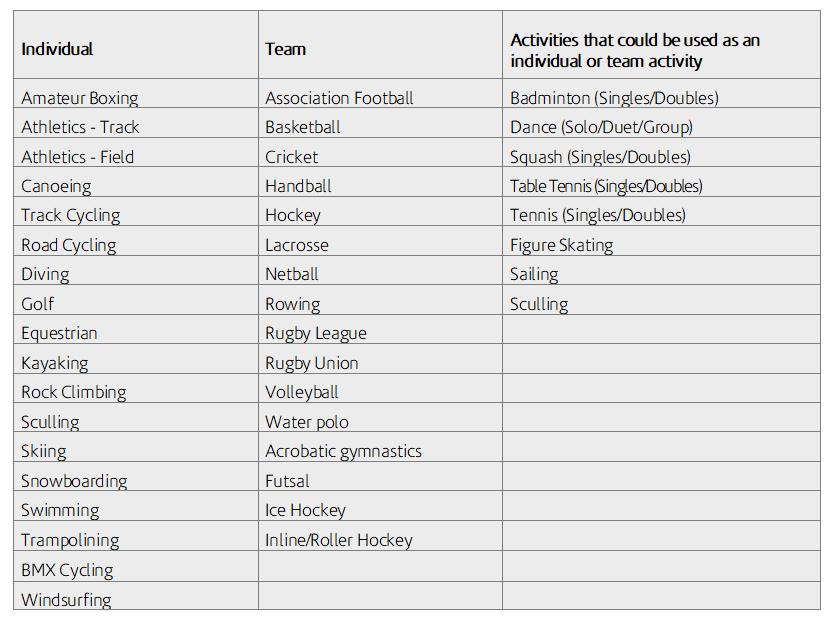
In addition, students will complete a Personal Exercise Plan (PEP) which is a written piece of coursework and is worth 10% of the overall grade


Examination Board and Specification Code: AQA Full Course Psychology (Code: 8182)
 Lucy Johnson Head of Psychology
Lucy Johnson Head of Psychology

Lucy graduated from the University of Worcester with a BSc in Psychology in 2001 She then followed her passion for Psychology and completed an MSc in Applied Occupational Psychology at Cranfield University, Bedfordshire, after which she began working as an Occupational Psychologist in the UK, utilising her qualifications in several industries, including the police
In 2003 Lucy embarked on a career change in order to share her enthusiasm for her subject, and began her teacher training at a large comprehensive school in Gloucestershire, UK Here she was Head of Psychology, Head of House and finally Director of Sixth Form and Assistant Head She successfully led the Sixth Form for eight years During this time she was fortunate to be involved in many initiatives that led to improved outcomes for students including a pilot study on the use of Cognitive Behavioural Therapy which ultimately led to a programme that has been used in many schools in the UK since Lucy’s love of Psychology has also been evidenced through her also completing qualifications in personality testing, aptitude testing and counselling.
Lucy is keen to share her love for this subject now she has moved to Dubai to teach, and is looking forward to furthering her students understanding of the rapidly changing world around them through psychological concepts and theories
Head of Department:
Ms L Johnson
Examination Board and Specification Code: AQA Full Course Psychology (Code: 8182)
Why study Psychology?
Psychology is the scientific study of people, the mind and behaviour It is both a thriving academic discipline and a vital professional practice (The British Psychological Society)
Psychology is particularly relevant to any job that involves working directly with people or any job that requires the use of problem solving skills.
You could become involved in the worlds of clinical, sport, occupational, health, forensic, educational or criminal psychology Alternatively, a career in education, the Armed Forces, sports management, human resources, medicine, the emergency services, media any career involving working with people!
Psychology is a remarkably fascinating subject at all levels of study. For more information: http://www.aqa.org.uk/subjects/psychology/gcse/psychology-8182
What is involved?
The study of:
Memory
Perception
Development
Research Methods
Social Influence
Language thought and communication
Brain and Neuropsychology
Psychological problems
How will I be assessed?
These topics will be assessed during two 105 minute examinations to be taken in May/June of Year 11 A combination of short answer and extended writing questions make up each examination. Students are expected to know and understand a broad range of research and demonstrate their ability to evaluate both research and psychological theories.
There is no coursework to complete in GCSE Psychology however, small-scale experiments will be conducted throughout the course in order to provide an insight and direct experience of research methods in psychology
 Fiona Temple-Smith Head of Modern Foreign Languages
Fiona Temple-Smith Head of Modern Foreign Languages

Upon graduating with a BA Joint Hons in 1993, Fiona worked in global business development for 14 years, where her language skills proved an invaluable asset In 2007 Fiona moved to the UK to complete her PGCE at the University of Cumbria, and went on to teach at Dallam, an IB World school, from 2008 to 2015. Here Fiona held a number of posts such as Head of CLIL, Head of Department and Professional Mentor. An innovative middle-leader, Fiona has successfully led on whole school initiatives, and collaborated with colleagues to raise standards in her own school and others As Head of CLIL, Fiona led on a highly successful bilingual education initiative, with exceptional early entry GCSE results in Year 9 and for which the school achieved national recognition, winning the British Academy Languages award in 2014 In 2013, Fiona completed a National Professional Qualification in Middle Leadership and trained as a Good to Outstanding Facilitator, working to improve standards of teaching and learning in her own school and others within the South Lakes Federation.
In 2015, Fiona joined the Modern Foreign Languages department at Jumeirah College and became Lead Professional Mentor for the iPGCE programme In 2019, Fiona worked as Lead Associate for the HPL iFoundation Programme and very much enjoyed providing training and support for CIS to achieve the award
Fiona is passionate about providing an aspirational, engaging and inclusive curriculum; one that encourages intellectual curiosity, enhanced communicative skills, confidence, independence, risk-taking and resilience, thereby developing lifelong learning skills She firmly believes that embedding these 21st Century skills gives our students the tools they need to succeed in our ever-evolving world
Head of Department:
Examination Board and Specification Code
Mrs F Temple-Smith
AQA Spanish (Code: 8698)
Students are encouraged to choose at least one Modern Language at GCSE level
Why study a Modern Foreign Language?
The ability to speak and understand a foreign language is an important part of a person ’ s overall education, for travelling abroad or communicating with other nationalities in any aspect of work It is therefore useful for most careers, but especially in the travel and tourism industry, international business, foreign office, finance, technology, journalism and teaching
Spanish is one of the world’s major languages, and it is the official language of most of South and Central America Wouldn't it be impressive to be able to offer your product or service to the 350 million people whose mother tongue is Spanish? In North America, Hispanic consumers are the fastest-growing market segment. Undoubtedly, if you are bilingual, you will be more marketable and have more career choices than your monolingual counterpart Globalization, with it’s accompanying free trade agreements is shrinking the business world, and those who know more than one language will definitely have the edge
What is involved?
The GCSE course covers three distinct themes as well as related sub-topics. These themes apply to all four skills. Students are expected to understand and provide information and opinions relating to their own experiences and those of other people, including people in countries or communities where Spanish is spoken Students sit their examinations at the end of the GCSE course in Year 11 in all four skills Each paper counts for 25% of the overall marks The main themes studied are:
Local, national, international and global areas of interest
Current and future study and employment
Scope of study:
As students progress during their Spanish GCSE they will learn how to:
Communicate and interact effectively in speech for a variety of purposes across a range of contexts
Communicate effectively in writing for a variety of purposes
Understand and respond to different types of written and spoken language
Understand and use more accurately a wider range of vocabulary and structures, including some unfamiliar language
How will I be assessed?
GCSE Spanish has a Foundation Tier (grades 1 - 5) and a Higher Tier (grades 4 - 9). Students may be entered for either Foundation Tier or Higher Tier, but they must enter the same tier for all four skills
Paper 1: Listening 25% of GCSE
The test will be pre-recorded using native speakers. Students’ comprehension will be tested by a range of question types, normally requiring non-verbal responses or responses in English.
Foundation Tier 35 minutes
Higher Tier 40 minutes
Paper 2: Speaking 25% of GCSE
40 marks
50 marks
Students will carry out one role-playing situation, discuss a stimulus card and take part in general conversation which involves asking and answering questions and exchanging opinions
Foundation Tier 7-9 minutes
Higher Tier 10-12 minutes
Paper 3: Reading 25% of GCSE
60 marks
60 marks
Students’ comprehension will be tested by a range of question types, normally requiring non- verbal responses or responses in English. Higher tier students will be given material which will include some complex, unfamiliar language in a range of registers together with non-factual and imaginative material including narrative
Foundation Tier 45 minutes
Higher Tier
60 marks
60 minutes
60 marks
Paper 4 Writing 25% of GCSE
At Foundation level students produce writing tasks which demonstrate their ability to write short texts using simple sentences and familiar language accurately, to convey meaning and exchange information
At Higher level students write to present facts and express ideas and opinions. They also make accurate use of a variety of vocabulary and grammatical structures, including some more complex forms, to describe and narrate with reference to past, present and future events
Foundation Tier 60 minutes
Higher Tier 1 hour 15 minutes
50 marks
60 marks


 Fionnuala Nic Conmara Head of Inclusion
Fionnuala Nic Conmara Head of Inclusion

Fionnuala taught in Ireland for 8 years, teaching students with SEND and typically developing students During this time she saw firsthand that inclusion benefits everyone and is the responsibility of every staff member In her teaching career in Ireland she held the roles of Head of Department, Head of Year and Head of Leaving Cert Applied
Fionnuala moved to the UAE in 2011, where she taught in a variety of schools Her next step was the Ministry of Education, UAE, where Fionnuala worked as an inclusive education advisor for almost 5 years In this role she gained significant experience, coaching and mentoring international staff to become inclusive practitioners
Fionnuala consolidated her knowledge of inclusive education through her postgraduate studies; she has a MA in Educational Leadership, and a MA in Special and Additional Learning Needs. In 2020, Fionnuala conducted research on parental expectations of the provision of inclusion in private schools in Dubai. She will apply the results of this research to support the provision of inclusion in Jumeirah College. She firmly believes that including parents and students in the decision making process is a real catalyst for positive change.
Jumeirah College along with the Support For Learning department provide an alternative pathway and curriculum for students of determination who are not able to academically access the traditional GCSE route. This is primarily through ASDAN, which is a UK-based organisation whose curriculum programmes help students develop knowledge and skills for learning, work and life. ASDAN’s vision is to transform life chances, enabling all learners to discover, develop and make full use of their abilities.
In KS4, students will be offered the opportunity to take “Towards Independence” modules in a wide range of subjects based on their needs and interests. These are based on the four main areas:
Communication and interaction
Cognition and learning
Social, emotional and mental health
Sensory and physical
Examples of these are literacy, numeracy, money management, IT skills and safety, food preparation, sports and leisure and also creative subjects. These provide students with practical lifeskills required for life after formal education.
